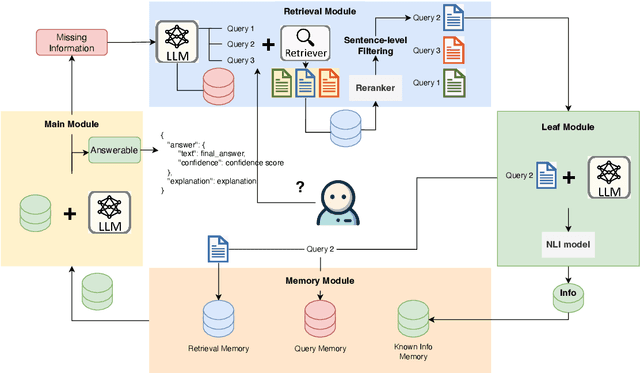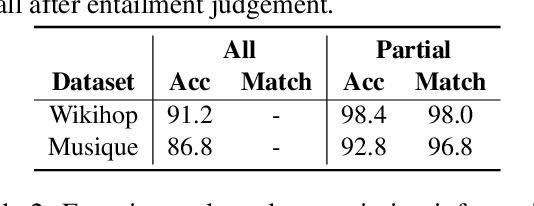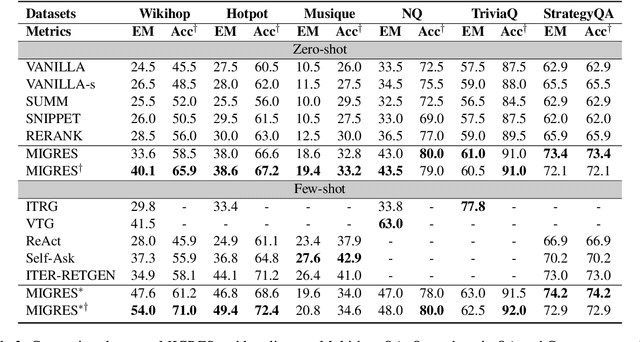Keheng Wang
LongCat-Flash-Thinking-2601 Technical Report
Jan 23, 2026Abstract:We introduce LongCat-Flash-Thinking-2601, a 560-billion-parameter open-source Mixture-of-Experts (MoE) reasoning model with superior agentic reasoning capability. LongCat-Flash-Thinking-2601 achieves state-of-the-art performance among open-source models on a wide range of agentic benchmarks, including agentic search, agentic tool use, and tool-integrated reasoning. Beyond benchmark performance, the model demonstrates strong generalization to complex tool interactions and robust behavior under noisy real-world environments. Its advanced capability stems from a unified training framework that combines domain-parallel expert training with subsequent fusion, together with an end-to-end co-design of data construction, environments, algorithms, and infrastructure spanning from pre-training to post-training. In particular, the model's strong generalization capability in complex tool-use are driven by our in-depth exploration of environment scaling and principled task construction. To optimize long-tailed, skewed generation and multi-turn agentic interactions, and to enable stable training across over 10,000 environments spanning more than 20 domains, we systematically extend our asynchronous reinforcement learning framework, DORA, for stable and efficient large-scale multi-environment training. Furthermore, recognizing that real-world tasks are inherently noisy, we conduct a systematic analysis and decomposition of real-world noise patterns, and design targeted training procedures to explicitly incorporate such imperfections into the training process, resulting in improved robustness for real-world applications. To further enhance performance on complex reasoning tasks, we introduce a Heavy Thinking mode that enables effective test-time scaling by jointly expanding reasoning depth and width through intensive parallel thinking.
Efficient Context Scaling with LongCat ZigZag Attention
Dec 30, 2025Abstract:We introduce LongCat ZigZag Attention (LoZA), which is a sparse attention scheme designed to transform any existing full-attention models into sparse versions with rather limited compute budget. In long-context scenarios, LoZA can achieve significant speed-ups both for prefill-intensive (e.g., retrieval-augmented generation) and decode-intensive (e.g., tool-integrated reasoning) cases. Specifically, by applying LoZA to LongCat-Flash during mid-training, we serve LongCat-Flash-Exp as a long-context foundation model that can swiftly process up to 1 million tokens, enabling efficient long-term reasoning and long-horizon agentic capabilities.
LLMs Know What They Need: Leveraging a Missing Information Guided Framework to Empower Retrieval-Augmented Generation
Apr 22, 2024



Abstract:Retrieval-Augmented Generation (RAG) demonstrates great value in alleviating outdated knowledge or hallucination by supplying LLMs with updated and relevant knowledge. However, there are still several difficulties for RAG in understanding complex multi-hop query and retrieving relevant documents, which require LLMs to perform reasoning and retrieve step by step. Inspired by human's reasoning process in which they gradually search for the required information, it is natural to ask whether the LLMs could notice the missing information in each reasoning step. In this work, we first experimentally verified the ability of LLMs to extract information as well as to know the missing. Based on the above discovery, we propose a Missing Information Guided Retrieve-Extraction-Solving paradigm (MIGRES), where we leverage the identification of missing information to generate a targeted query that steers the subsequent knowledge retrieval. Besides, we design a sentence-level re-ranking filtering approach to filter the irrelevant content out from document, along with the information extraction capability of LLMs to extract useful information from cleaned-up documents, which in turn to bolster the overall efficacy of RAG. Extensive experiments conducted on multiple public datasets reveal the superiority of the proposed MIGRES method, and analytical experiments demonstrate the effectiveness of our proposed modules.
InstructERC: Reforming Emotion Recognition in Conversation with a Retrieval Multi-task LLMs Framework
Sep 22, 2023



Abstract:The development of emotion recognition in dialogue (ERC) has been consistently hindered by the complexity of pipeline designs, leading to ERC models that often overfit to specific datasets and dialogue patterns. In this study, we propose a novel approach, namely InstructERC, to reformulates the ERC task from a discriminative framework to a generative framework based on Large Language Models (LLMs) . InstructERC has two significant contributions: Firstly, InstructERC introduces a simple yet effective retrieval template module, which helps the model explicitly integrate multi-granularity dialogue supervision information by concatenating the historical dialog content, label statement, and emotional domain demonstrations with high semantic similarity. Furthermore, we introduce two additional emotion alignment tasks, namely speaker identification and emotion prediction tasks, to implicitly model the dialogue role relationships and future emotional tendencies in conversations. Our LLM-based plug-and-play plugin framework significantly outperforms all previous models and achieves comprehensive SOTA on three commonly used ERC datasets. Extensive analysis of parameter-efficient and data-scaling experiments provide empirical guidance for applying InstructERC in practical scenarios. Our code will be released after blind review.
Knowledge-Driven CoT: Exploring Faithful Reasoning in LLMs for Knowledge-intensive Question Answering
Aug 25, 2023



Abstract:Equipped with Chain-of-Thought (CoT), Large language models (LLMs) have shown impressive reasoning ability in various downstream tasks. Even so, suffering from hallucinations and the inability to access external knowledge, LLMs often come with incorrect or unfaithful intermediate reasoning steps, especially in the context of answering knowledge-intensive tasks such as KBQA. To alleviate this issue, we propose a framework called Knowledge-Driven Chain-of-Thought (KD-CoT) to verify and modify reasoning traces in CoT via interaction with external knowledge, and thus overcome the hallucinations and error propagation. Concretely, we formulate the CoT rationale process of LLMs into a structured multi-round QA format. In each round, LLMs interact with a QA system that retrieves external knowledge and produce faithful reasoning traces based on retrieved precise answers. The structured CoT reasoning of LLMs is facilitated by our developed KBQA CoT collection, which serves as in-context learning demonstrations and can also be utilized as feedback augmentation to train a robust retriever. Extensive experiments on WebQSP and ComplexWebQuestion datasets demonstrate the effectiveness of proposed KD-CoT in task-solving reasoning generation, which outperforms the vanilla CoT ICL with an absolute success rate of 8.0% and 5.1%. Furthermore, our proposed feedback-augmented retriever outperforms the state-of-the-art baselines for retrieving knowledge, achieving significant improvement in Hit performance.
 Add to Chrome
Add to Chrome Add to Firefox
Add to Firefox Add to Edge
Add to Edge